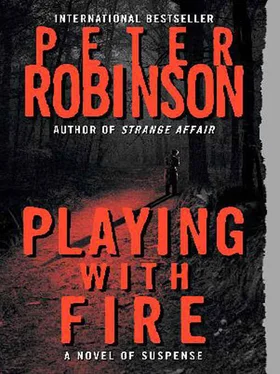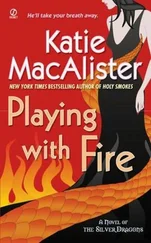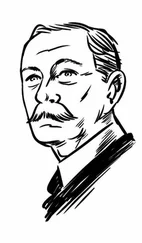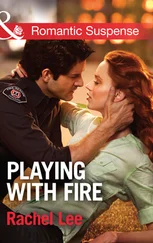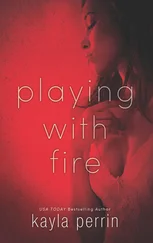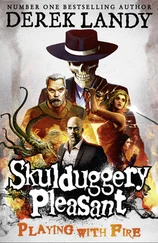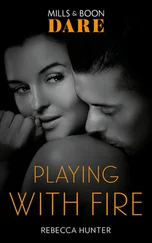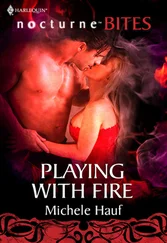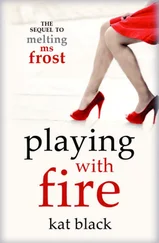“I’m glad to hear it. Look, Winsome…”
“What, ma’am?”
“About this ‘ma’am’ business. It makes me feel like an old woman. Do you think you could call me something else?”
Winsome laughed. “What do you recommend?”
“Up to you, really.”
“Boss?”
“No. Don’t like that.”
“Chief.”
“No.”
“How about Guv?”
Annie thought for a moment. Banks didn’t like “Guv,” she knew. He said it sounded too much like television. But Annie didn’t mind that. And she liked the sound of it. “Okay,” she said. “ ‘Guv’ will do fine.”
“Right you are, Guv. What do you think?”
“About William Masefield?”
“Yes.”
“I’m not sure,” said Annie. “It can’t be as easy as this, surely?”
“Sometimes it is. Easy, I mean.”
“Not in my experience. If he’s got any brains at all, he must have known we’d track him through the rental and the credit card eventually.”
“Maybe he’s not so bright as you think.” Winsome dodged in and out of a convoy of about six articulated juggernauts with Spanish number plates, and Annie looked at the map. “We’re nearly there. Get over in the left lane.”
Winsome flashed her signal and edged over.
“You want Junction three. The A-435. Here it is.”
Winsome took the exit and slowed down quickly. Annie turned to a more detailed map of the area she had bought before the journey and found the street in Studley. Winsome drove more sedately now, and there was little traffic on the road. They turned down a hill, then right into a network of streets, Annie looking for the address they had got from the garage.
Finally, Winsome pulled up in front of where the house should have been. The ones around were all detached. Not large, but comfortable enough, with bay windows and garages. The only problem was that where number eleven was supposed to be there was nothing but an empty lot.
They got out of the car, puzzled, and looked at the empty space.
“Help you, love?” said a voice behind them in a slightly nasal Midlands accent.
Annie turned and saw the woman had come out of the house across the street, a gray cardigan wrapped around her shoulders. “Maybe you can,” she said, flashing her warrant card and introducing Winsome. “We’re looking for a Mr. William Masefield.”
“Ah, Mr. Masefield,” the woman said. “I’m afraid you’re a bit late, love. And so’s he. He’s dead.”
“When?”
“Last August.”
“What did he die of? What happened to the house?”
“Burned down.”
“There was a fire?”
“Yes. Whole place went up. Lucky it didn’t take the rest of the street.”
Annie’s mind raced. “Did you see it? The fire?”
“No. Gerald and me were in Spain. Go every summer. When we got back it was all over. Just a ruin.”
“What caused it?”
“I don’t know all the details, love. You’ll have to ask the firemen.”
“Did Mr. Masefield live alone?”
“Yes. He was a bachelor.”
“Did he have any visitors?”
“Not that I saw. Bit of a dark horse. Reclusive.”
“What did he look like?”
“About six foot, maybe a bit more. Stooped from bending over all those textbooks at university, I wouldn’t be surprised. Going a bit gray.”
“What university?”
“He was a lecturer at Warwick.”
“What subject?”
“Physics, I think. Or chemistry. Some sort of science, anyway.”
“How old was he?”
“Hard to say, really. Early-to-mid-forties, at a guess. Look, why do you want to know all this?”
“Just a case we’re working on up north,” said Annie. “Thanks, anyway. You’ve been a great help.”
The woman stood there for a moment, until she seemed to realize she’d been dismissed, then she turned, sniffed, and walked back to her house.
“Well,” said Annie, looking at Winsome. “I think we’d better get cracking and ask a few questions while we’re down here, don’t you?”
“Yes, Guv,” said Winsome.
Banks wondered what the hell he was doing sitting on a park bench in Camden Town on a gray January afternoon. Nothing but a small triangle of grass, a few scrappy trees, swings and a roundabout and a couple of damp green benches. On the face of it, he was trying to pluck up the courage to visit Sandra, whose house he could see through the bare branches across the street. But why he wanted to see her was beyond him. Yes, Maria Phillips had told him that Sandra had talked to Thomas McMahon often, but it was unlikely she would be able to tell him anything useful about the dead artist. Banks hadn’t seen Sandra in over a year, not since she told him she wanted a divorce, in a café not far from the spot where he was sitting. So why now? Was it the baby? Morbid curiosity? And why was it so hard to pluck up the courage?
He stood up and walked toward the gates. This was stupid, he told himself; he might as well head for King’s Cross and catch the next train home. He could even phone Michelle. Maybe they could manage a bit more than a quick kiss through the train window. It would be easy to get off at Peter-borough if she happened to have the evening free. There was nothing for him here.
Just as he turned the corner toward the tube station, he saw a woman walking toward him, pushing a pram. It was Sandra, no doubt about it. She was still wearing the same artsy granny glasses and short, layered haircut as the last time he saw her, blond hair and black eyebrows. She also wore a long beige raincoat and had a black wool scarf wrapped around her neck.
When she saw him, she stopped. “Alan. What…?”
“I just wanted a word,” said Banks, surprised the words came out so easily, with his heart stuck in his throat the way it was.
“I’ve just been to the shops,” Sandra said. Then she leaned forward and adjusted the blanket in the pram. Banks was still facing her and couldn’t see inside. She looked up at him again, her expression unreadable, except he sensed some sort of protection, something primal, unconscious, in the way she tended to the child. It was almost, Banks felt, as if he were perceived as a threat, as if he were the enemy . He felt like saying, “There’s nothing to be afraid of. It’s only me,” but he didn’t. Instead, Sandra spoke. Glancing over at the park, she said, “Walk?”
“Fine,” said Banks. He stepped aside as she started walking again and fell in beside her. They paused to check the traffic carefully before crossing the road, and Banks sneaked his first glance at baby Sinéad. He almost breathed a sigh of relief to discover that she looked pretty much the same as any other month-old child did: like Winston Churchill. Sandra caught him looking, and he noticed her redden before she pushed the pram forward across the street.
“What is it?” she asked.
“What?”
“You wanted to talk to me.”
“Oh, yes. It’s nothing, really. Just a case I’m working on. Remember an artist called Thomas McMahon?”
“Tom? Yes, of course. Why?”
“He’s dead.”
“Dead?”
“Yes, killed in a fire. He was squatting on a barge down on the canal.”
“I take it he was murdered, or you wouldn’t be here?”
“Looks that way,” said Banks.
“Poor Tom. He was harmless. He wouldn’t hurt a soul.”
“Well, someone hurt him.”
“A fire, you said?”
“Yes. Arson. He was unconscious at the time. He wouldn’t have… you know.”
Sandra nodded. Her small, pale nose was a little red at the tip, he noticed, as if she had a cold. “I haven’t seen him in five years or more,” she said. “I don’t know how I can help you.”
“I don’t know, either,” said Banks, sticking his hands in his overcoat pockets. “I’m sorry. Perhaps I shouldn’t have come.”
Читать дальше
